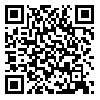Sat, Jul 19, 2025
| فارسی
Volume 18, Issue 4 (Winter 2017)
Advances in Cognitive Sciences 2017, 18(4): 72-87 |
Back to browse issues page
Download citation:
BibTeX | RIS | EndNote | Medlars | ProCite | Reference Manager | RefWorks
Send citation to:



BibTeX | RIS | EndNote | Medlars | ProCite | Reference Manager | RefWorks
Send citation to:
Nazari M A, Jalalkamal H. Effect of Repetition Suppression Phenomenon and Pitch of the Auditory Stimulus on Perceived Duration and N1 and P2 Auditory Evoked Potentials (AEP). Advances in Cognitive Sciences 2017; 18 (4) :72-87
URL: http://icssjournal.ir/article-1-521-en.html
URL: http://icssjournal.ir/article-1-521-en.html
1- Department of Psychology, Cognitive Neuroscience Laboratory, University of Tabriz
2- Department of Computer Engineering, Higher Education Complex of Zarand, Kerman, Iran.
2- Department of Computer Engineering, Higher Education Complex of Zarand, Kerman, Iran.
Abstract: (3518 Views)
Objective: By repetitive stimulus presentation, neural activation along the sensory pathways is reduced; a phenomenon which is known as Repetition Suppression. Behavioral results have revealed that presentation of an auditory oddball stimulus after some repetitive presentation of a standard stimulus causes time overestimation. The goal of this study was to investigate the effect of repetition suppression and pitch of an auditory stimulus on time perception using Event Related Potentials (ERP).
Method: for this purpose, an oddball time discrimination task was performed on 18 male and female students while the EEG was recordedsimultaneously.
Results: Behavioral and ERP results indicated that the repetition suppression and pitch increase lead to time overestimation and N1 and P2 augmentation.
Conclusion: temporal processing of an auditory stimulus is performed in modality-specific areas of the brain;a result which is consistent with intrinsic models of time perception.
Method: for this purpose, an oddball time discrimination task was performed on 18 male and female students while the EEG was recordedsimultaneously.
Results: Behavioral and ERP results indicated that the repetition suppression and pitch increase lead to time overestimation and N1 and P2 augmentation.
Conclusion: temporal processing of an auditory stimulus is performed in modality-specific areas of the brain;a result which is consistent with intrinsic models of time perception.
Keywords: Time Perception, Repetition Suppression, Pitch of a tone, Auditory Evoked Potential (AEP), Event Related Potential (ERP)
Type of Study: Research |
Subject:
Special
Received: 2016/04/18 | Accepted: 2016/08/29 | Published: 2016/12/21
Received: 2016/04/18 | Accepted: 2016/08/29 | Published: 2016/12/21
Send email to the article author
| Rights and permissions | |
 |
This work is licensed under a Creative Commons Attribution-NonCommercial 4.0 International License. |



